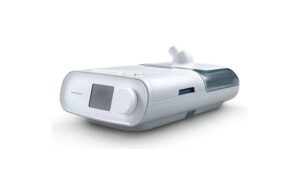
Philips (NYSE:PHG) today issued an update on its ongoing Respironics recall issues that included an update on total reports received.
In 2021, Philips initiated a recall involving millions of CPAP and BiPAP ventilators and other respiratory devices for sleep apnea and more. These devices had sound abatement foam that could potentially degrade and get into the airways.
Philips Respironics effectively remains out of the sleep therapy market today. The most recent tally associated with reports to the FDA includes 260 deaths. Here’s a timeline of how the recall played out.
In the company’s update issued today, Philips said Respironics relied on an initial, limited data set and toxicological risk assessment. It assumed a “reasonable worst-case scenario” for the potential health risks. Following public statements in April 2021 and the recall notification in June of that year, the company received ” a steep increase in complaints allegedly associated with possible foam degradation.”
Philips updates on total reports received
Philips said this led to an increase of approximately 20,500 medical device reports (MDRs) filed by Philips Respironics to the FDA. These occurred between April 2021 and April 2022. Through the following six months, the company filed a further 70,500 MDRs. In November and December of last year, it added 8,300 MDRs to the tally.
That brings the total to approximately 99,000 MDRs filed from April 2021 up to and including December 2022, Philips said.
Philips noted that “the vast majority” of the MDRs (93%) feature alleged malfunctions that don’t involve serious injury. The FDA’s MDR system remains a passive system with limitations. Submission of an MDR itself does not offer evidence of the device causing or contributing to the adverse outcome or event.
The company said it investigates all allegations of technical malfunction, serious injury or death.
“Based on the investigations to date, Philips Respironics has found no conclusive data linking these devices and the deaths reported in certain of these MDRs,” the company said in its update. An investigation of its recalled DreamStation sleep therapy devices showed that, among other things, exposure to certain emissions from the recalled devices is “unlikely to result in appreciable harm to health in patients.”